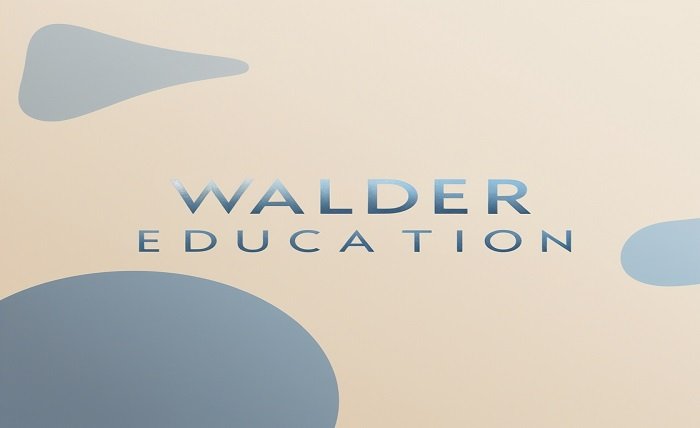The foundation of innovation and progress is education, and as the world changes, so does the demand for creative and progressive educational models. With its dynamic approach to learning that blends classical concepts with contemporary technology, individualized learning, and a global viewpoint, walder education is one such model that has drawn the interest of educators, parents, and students alike. We will go into great detail about in this extensive guide, including its definition, guiding ideals, effects on students, and how it is changing the face of education.
What is Walder Education?
The Core Concepts of Walder Schooling It places an emphasis on a comprehensive, student-centered approach that blends social and emotional growth with academic proficiency. The term “Walder” refers to a particular set of ideas created by teachers that support combining conventional instruction with contemporary teaching methods in an effort to produce pupils who are more attentive, resilient, and involved.
The Core Concepts of Walder Schooling
Differs from traditional educational systems because it is based on a number of fundamental ideas. These guidelines emphasize developing the full kid and making sure that education is interesting, purposeful, and applicable to students’ daily life. The following are some of the fundamental ideas that is based on:
Learning that is Student-Centered
The student is at the center of the learning process at walder education. It encourages teachers to modify classes to accommodate each student’s unique needs, interests, and talents rather than following a curriculum that is meant to fit all students. Every student may realize their full potential thanks to this individualized approach, which also helps to cultivate a love of learning.
Walder Education’s Evolution
walder education did not appear out of thin air. In an increasingly complicated world, it changed to meet the evolving demands of pupils. Though useful in some situations, traditional educational institutions were frequently criticized for being overly strict, uniform, and unrelated to practical applications. Teachers looked for fresh approaches to engage pupils and get them ready for the future as they realized the shortcomings of conventional teaching techniques.
Walder Education’s Customized Education
walder education‘s dedication to individualized instruction is one of its defining characteristics. acknowledges that every student learns differently and at their own pace, in contrast to traditional educational institutions that frequently employ a “one-size-fits-all” approach. Knowing each student’s unique talents, limitations, interests, and learning preferences helps to provide personalized learning.
Technology’s Place in Walder Education
walder education is not an exception to the growing importance that technology plays in education in the digital era. Instead of taking the place of conventional teaching techniques, technology is utilized as a tool to improve learning. Technology fits into the concept in the following ways:
Interactive Educational Resources
To engage students and support their learning in dynamic ways, walder education uses online resources, instructional apps, and interactive learning platforms. These resources give teachers and students immediate feedback and enable individualized learning experiences.
Virtual Classrooms
In many instances, goes beyond the classroom to include online learning spaces where students can communicate with classmates and teachers worldwide. This fosters the growth of global relationships and digital literacy.
Global Perspectives in Walder Academy
By enabling pupils to interact with global challenges and ideas, walder education cultivates a global perspective in them. Given how interconnected the globe is, future leaders must be able to think internationally. Students are exposed to a variety of cultures, languages, and points of view through global initiatives, exchange programs, and international connections. Their perspectives are expanded, and they also gain empathy, cultural sensitivity, and knowledge of global concerns like poverty, human rights, and climate change.
The Effect on the Development of Students
The goal of walder education is to develop well-rounded people who are emotionally knowledgeable, socially conscious, and academically proficient. The advantages go beyond the classroom and have a significant impact on students’ development.
Academic Performance
Better academic results are the consequence of the individualized approach and the focus on problem-solving and critical thinking. Pupils gain a thorough comprehension of the material and become more capable of using what they have learned in practical situations.
Social-Emotional Development
Strong interpersonal, self-regulation, and emotional intelligence are developed in students. They are better equipped to handle difficult social and emotional situations in school and in later life as a result.
Conclusion
To sum up, walder education signifies a revolutionary change in the way we view education. By emphasizing the whole kid, utilizing technology, implementing individualized learning, and encouraging global awareness, provides a dynamic, inclusive, and progressive paradigm for education in the twenty-first century. It puts the conventional educational system to the test and creates new opportunities for both teachers and students.
FAQ
Does Walder Education belong to a particular school or organization?
No, is not a particular school or organization; rather, it is a philosophy and a collection of teaching methods. It can be used in many different types of educational environments around the world.
What distinguishes Walder Education from conventional schooling?
Student-centered, emphasizes global perspectives and critical thinking, stresses holistic development, and employs technology to improve learning. It shifts from strict, one-size-fits-all methods to more dynamic, individualized learning opportunities.
Is it possible to implement Walder Education in public schools?
Indeed, the walder education tenets can be applied to public, private, and charter schools, among others. The model’s adaptability allows it to be used in a variety of educational contexts. Read more about: toonstream in

